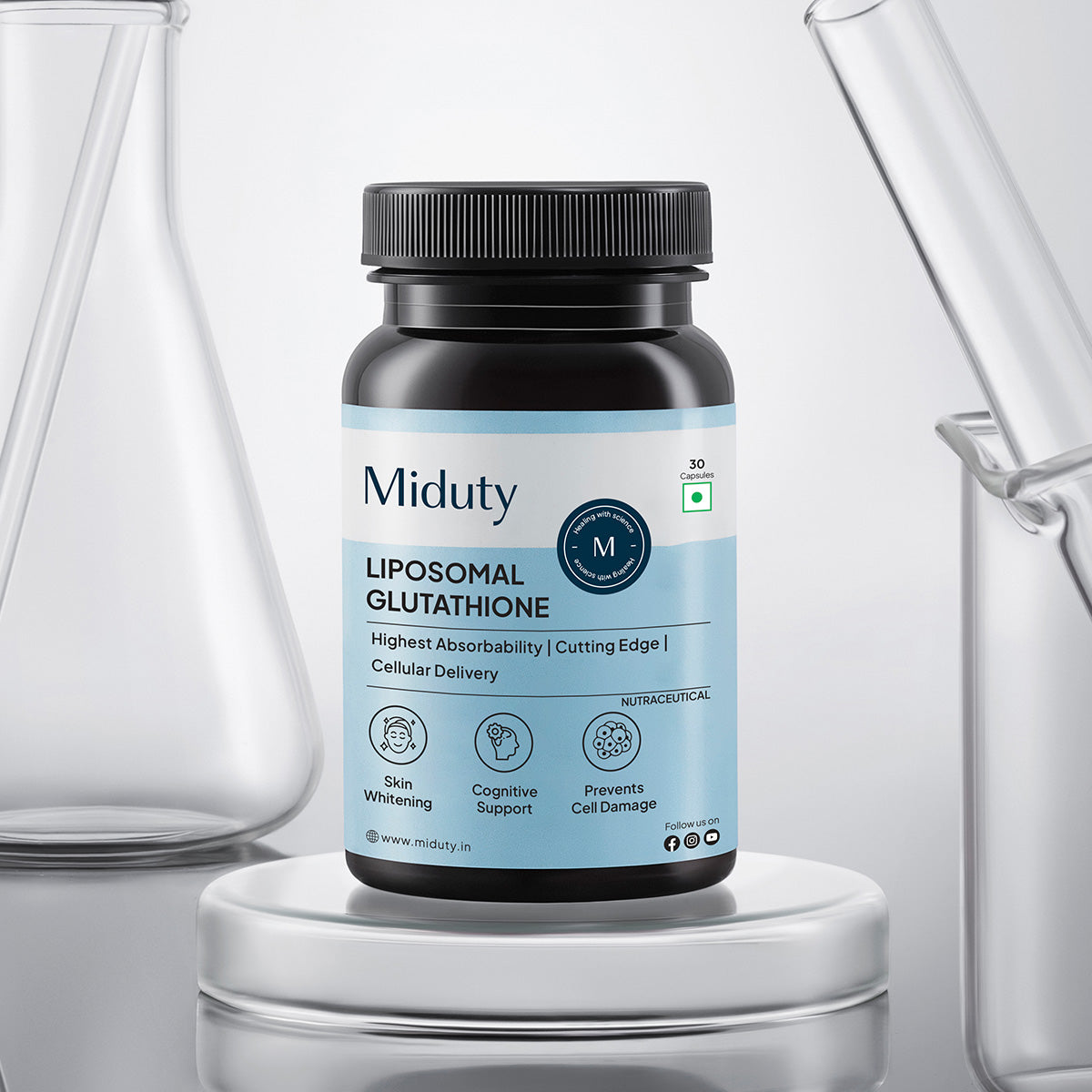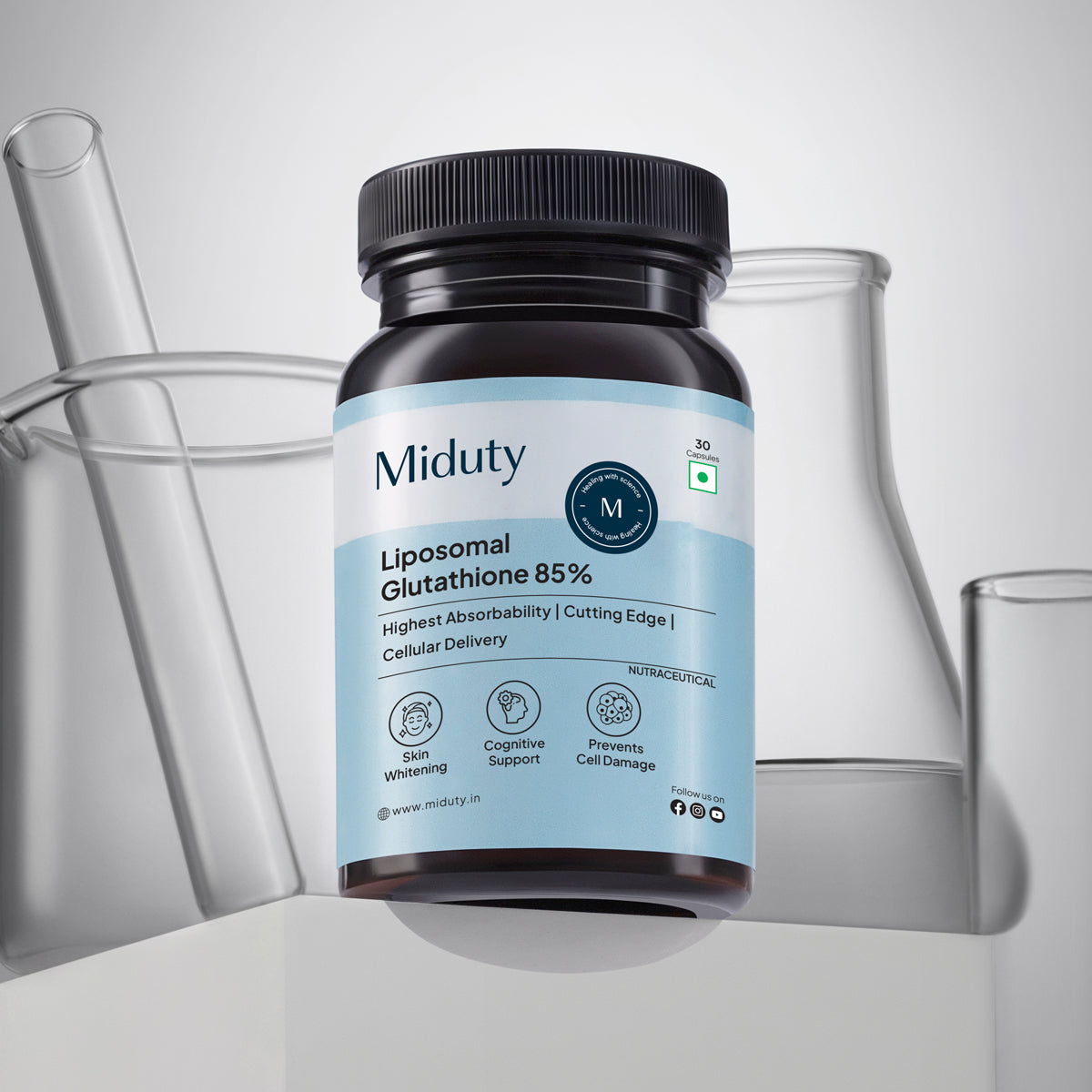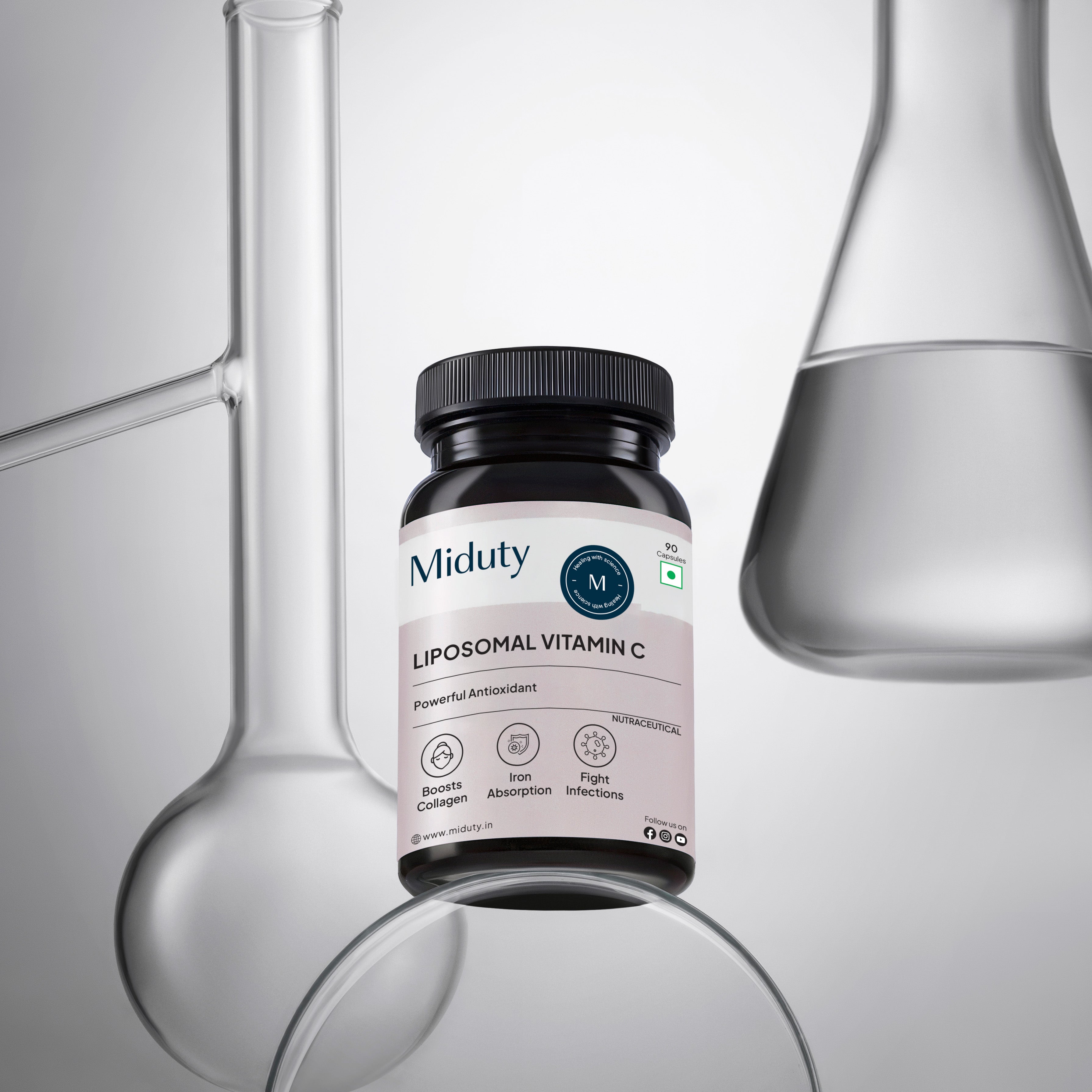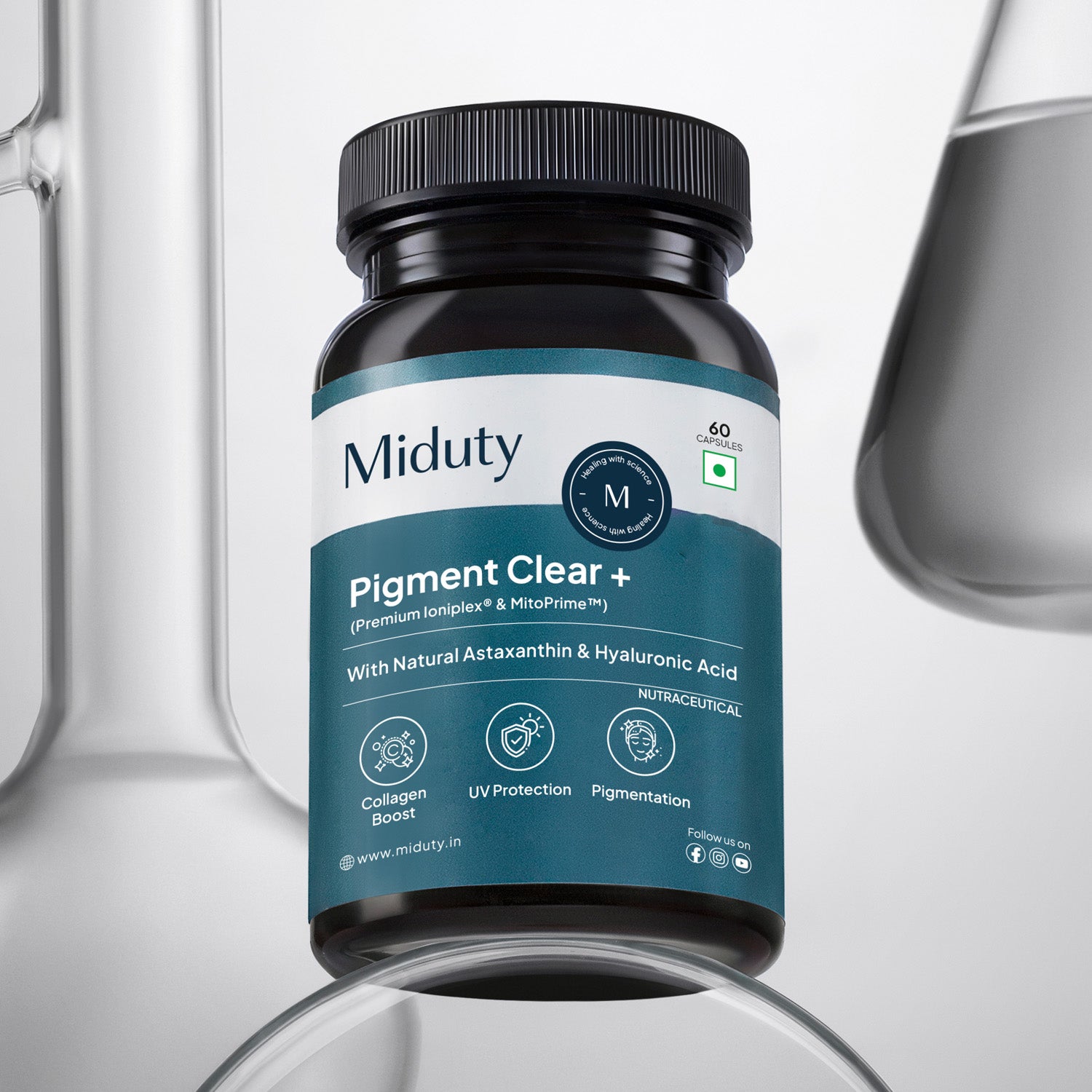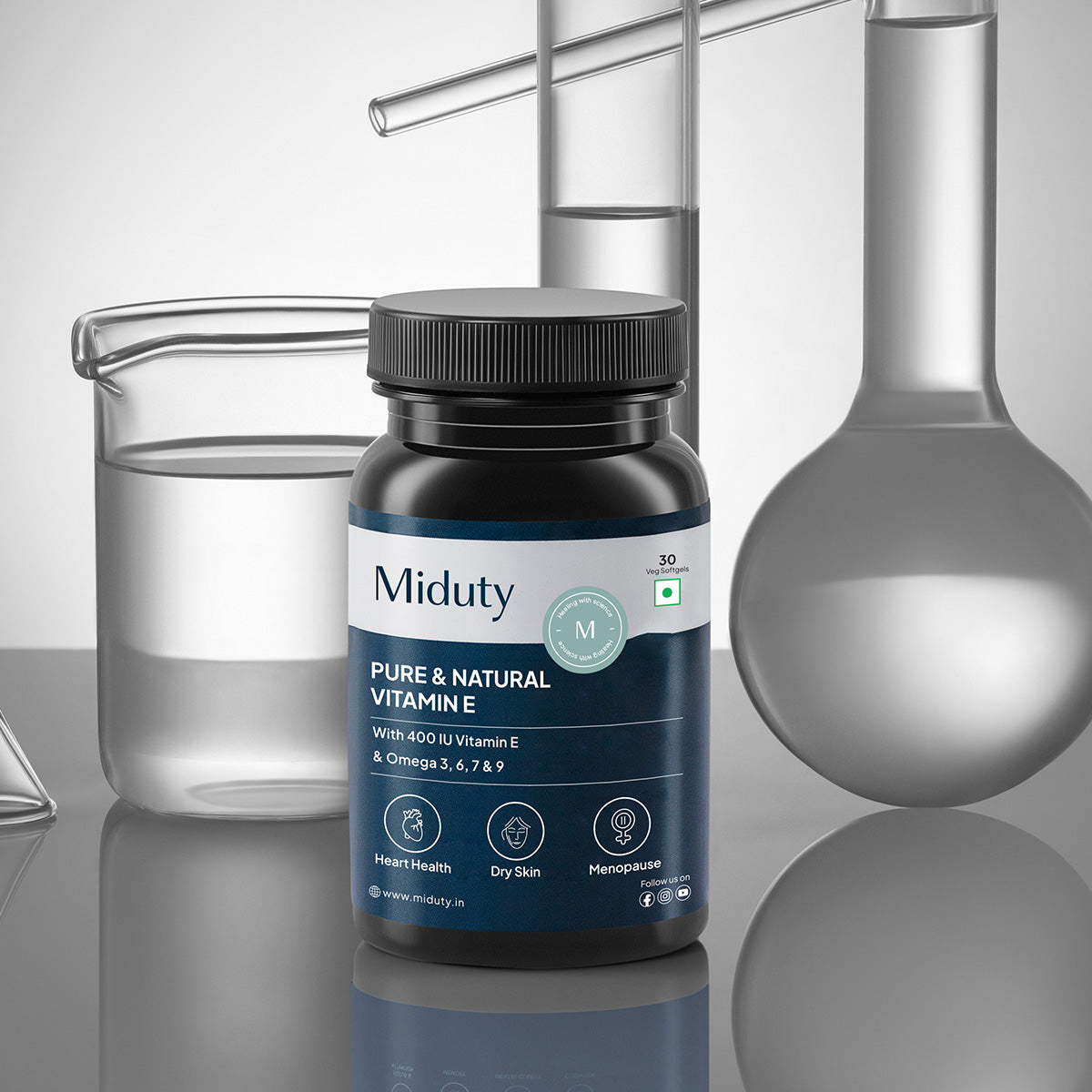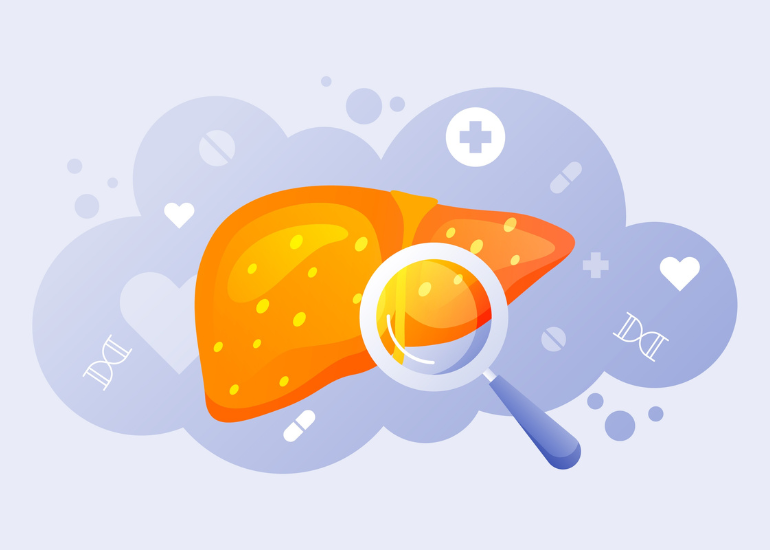
Liver Detox Myths vs Facts: What Really Works?
Key Takeaways
1. Your liver is a natural detox system — it continuously filters and neutralizes toxins; no external "cleanse" can replace its function.
2. Detox teas, juice cleanses, and extreme fasting don't truly detoxify the liver — they may even deplete essential nutrients and cause stress.
3. Science-backed nutrients like NAC and Milk Thistle support liver repair, glutathione production, and toxin elimination naturally.
4. Liver detox isn't a one-time fix — daily habits like clean eating, hydration, and good sleep are what keep your liver functioning efficiently.
5. A healthy liver benefits your whole body — from clearer skin and better digestion to improved metabolism, energy, and hormonal balance.
When it comes to detoxing the body, the liver often takes center stage. From juices and teas to supplements and fasting programs, everyone seems to have their version of the perfect detox. But here's the truth: your liver is already your body's natural detox powerhouse. It works 24/7 to neutralize toxins, filter blood, and support digestion.
Modern lifestyles filled with processed food, alcohol, environmental pollutants, and stress can burden the liver's natural detoxification system. The real goal isn't to "flush" your liver overnight, it's to support it consistently so it can do its job efficiently.
So, do you really need a liver detox? Let's separate myths from facts and understand what truly supports liver health and what doesn't.
Understanding the Role of the Liver in Detoxification
Before we bust the myths, it's important to understand what your liver actually does. The liver performs over 500 vital functions, but its key role is detoxification, breaking down harmful substances like alcohol, drugs, chemicals, and metabolic waste into less harmful compounds that can be excreted through urine and stool. [1]
It also:
- Produces bile for digestion
- Metabolizes fats, proteins, and carbohydrates
- Stores essential vitamins and minerals (like Vitamin A, D, E, K, B12, and Iron)
- Supports hormonal balance and immune function
Common Liver Detox Myths and Facts
Myth 1: You Need Juice Cleanses to Detox Your Liver
Fact:
Juice cleanses might give you the illusion of a quick reset, but they don't truly "cleanse" your liver. Your liver doesn't store toxins that can be flushed out with a juice or a smoothie. It continuously converts harmful substances into safe, excretable forms through urine and bile.
While fruit and vegetable juices provide antioxidants and hydration, going on an extreme liquid-only diet can deprive your body of essential nutrients, fiber, and protein, all of which your liver needs to function properly.
What Works:
Eat foods rich in antioxidants (like Vitamin C, Vitamin E, and Selenium) and fiber, like beets, berries, spinach, and carrots. They contain natural compounds that help the liver neutralize toxins. Stay hydrated, eat balanced meals, and include naturally liver-supportive foods like garlic, beetroot, turmeric, and leafy greens. [2]
Myth 2: The Liver Needs "Detox Teas" to Flush Out Toxins
Fact:
Most so-called detox teas contain diuretics like dandelion or senna. These may increase urination or bowel movements, giving you the feeling that your body is "flushing toxins." In reality, this only causes temporary water loss and dehydration, not actual liver detoxification.
What Works:
Support your liver with hydration and natural detoxifiers such as N-Acetyl Cysteine (NAC) and Milk Thistle (Silymarin). [3]
- NAC helps the liver produce glutathione, the body's master antioxidant that neutralizes free radicals. [4]
- Milk Thistle protects liver cells from toxins and supports regeneration.
These are scientifically proven ingredients and not quick fixes.
Myth 3: Fasting Completely Resets Liver Function
Fact:
Short-term intermittent fasting can improve insulin sensitivity and reduce fat accumulation in the liver. [5] But long-term or extreme fasting can backfire, and your liver still needs energy to process toxins and maintain glucose levels for the brain and muscles.
When fasting goes wrong, it can slow metabolism and even increase liver stress.
What Works:
A balanced approach, such as 12-14 hours of overnight fasting, works best. Combine it with nutrient-rich meals containing protein, fiber, and healthy fats. This helps the liver rest and recover naturally without compromising nutrient supply. Eat small, regular meals that include fiber, lean proteins, and healthy fats. Foods rich in choline (like eggs and legumes) and antioxidants (like berries and citrus fruits) help reduce liver inflammation and promote detoxification.
Myth 4: All "Detox" Supplements Are the Same
Fact:
Not all detox supplements are created equal. Some contain cheap fillers, synthetic compounds, or ineffective dosages that do more harm than good.
Real liver support requires well-researched ingredients at effective concentrations, such as 900 mg NAC, 400 mg Milk Thistle (80% Silymarin), Beetroot, and Dandelion Root. These help enhance bile flow, reduce inflammation, and strengthen liver cells.
What Works:
Look for supplements that are third-party tested, clean-label, and formulated to support both Phase 1 and Phase 2 liver detoxification, the two key metabolic processes that neutralize and eliminate toxins.
Myth 5: If You Don't Drink Alcohol, You Don't Need a Liver Detox
Fact:
Alcohol is just one of many factors that affect liver health. Even if you don't drink, your liver is constantly processing toxins from:
- Processed foods and seed oils
- Environmental pollutants and pesticides
- Medications and synthetic additives
- Hormonal by-products and metabolic waste
This means that everyone, not just drinkers, needs to care for their liver.
What Works:
Focus on daily habits:
- Drink enough water
- Avoid processed and fried foods
- Eat cruciferous vegetables like broccoli and cauliflower (they help Phase 2 detox)
- Maintain a healthy weight
- Manage stress (since cortisol also affects liver metabolism)
Myth 6: Detoxing Once a Year is Enough
Fact:
Your liver works 24×7 not just during your "detox week." Periodic cleansing without daily care is like cleaning your room once a year and expecting it to stay spotless.
What Works:
Think of liver detox as a lifestyle, not an event. Build habits that continuously reduce your toxin load and support your liver's natural pathways:
- Eat an anti-inflammatory diet
- Avoid excessive sugar and alcohol
- Supplement wisely with antioxidants and amino acids
- Sleep well as most liver repair happens at night
Conclusion: The Real Detox is Consistency
There's no magic drink, tea, or 3-day cleanse that can fix years of toxin buildup. The real liver detox happens through consistent support, nutrient-rich foods, hydration, and lifestyle balance.
When you stop chasing trends and start respecting your body's biochemistry, your liver rewards you with clearer skin, better digestion, balanced hormones, and renewed energy. So, the next time you hear about a "miracle liver cleanse," remember your liver doesn't need a reset button. It needs your support every day.
FAQ's on Liver Detox Myths and Facts
Q1. Do liver detoxes actually work?
Yes, but only when done the right way by supporting your liver's natural detox process through nutrient-rich foods, proper hydration, and science-backed ingredients like NAC and Milk Thistle, not through fad cleanses or extreme diets.
Q2. What to avoid during a liver cleanse?
Avoid alcohol, processed foods, refined sugar, and unregulated detox products. These can overload your liver and slow its natural detox pathways.
Q3. What will happen if you detox your liver?
When you support your liver with the right foods, supplements, and hydration, it functions more efficiently, leading to better digestion, clearer skin, balanced hormones, and improved energy levels.
Q4. How to know if the liver is detoxing properly?
You'll feel the benefits naturally with steady energy, smooth digestion, clear skin, and balanced hormones, showing your liver is efficiently supporting your body's detoxification.
Q5. How many days does it take to detoxify the liver?
With consistent healthy habits, your liver can start functioning more efficiently within a few weeks, supporting better digestion, energy, and overall wellness.
References




